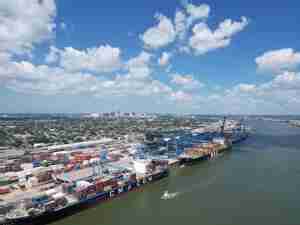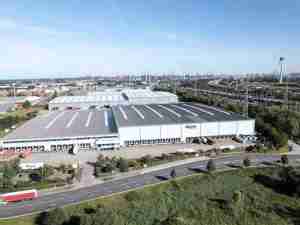World powers have been pressing President Ali Abdullah Saleh to sign a Gulf-mediated deal to end his three-decade rule and stem spreading chaos in unstable Yemen, a haven for al Qaeda and neighbor to the world's biggest oil exporter, Saudi Arabia.
At stake is the Bab al-Mandab gateway off Yemen's coast, through which more than 3 million barrels of oil are shipped daily to Europe, the United States and Asia.
"In theory, should the regime collapse, security in the region could very well spiral downward," J. Peter Pham of U.S. think tank the Atlantic Council said.
"Yemen has a long 1,900-km (1,181-mile) coastline fronting both the Gulf of Aden and the Red Sea."
Militants have launched successful maritime attacks in the area before. An al Qaeda suicide bombing killed 17 sailors on the U.S. warship Cole in Aden's port in 2000. Two years later, al Qaeda hit a French tanker in the Gulf of Aden, south of Bab al-Mandab.
Al Qaeda also plotted to hijack or sink oil tankers last year, U.S. officials said last month, based on intelligence found in Osama bin Laden's Pakistan compound.. Al Qaeda in the Arabian Peninsula (AQAP), the Yemen-based wing of the militant group, is seen by analysts as one of the main groups that could target shipping in strategic sea lane.
Yet while the risks would rise if Yemen collapsed, analysts played down the likelihood of an upswing in major AQAP attacks.
"It is unlikely that AQAP would be able to gain enough of a foothold to really impact upon the Bab al-Mandab, despite past statements indicating they would aim to disrupt the strait," said Alan Fraser, Middle East analyst with security firm AKE.
"Sporadic maritime attacks are a possibility. However, as was shown by the attack on the Japanese tanker near the Strait of Hormuz in July 2010, these are logistically hard to carry out so the threat would be unlikely to escalate beyond a sporadic threat."
One seaman was hurt in the Japanese tanker attack and there was no oil spill or disruption to shipping, suggesting that the way modern vessels are built minimises the risk of major damage.
With international naval warships now operating an anti-piracy sea corridor that passes by Yemen, maritime analysts say AQAP could also find it harder to operate without detection.
John Dalby, with maritime security specialists MRM, said that to mount a maritime attack, AQAP would need to "marshal resources, hardware and personnel somewhere on the coastline".
"It's to be hoped that such a move would be detected by the intelligence community and in real time by the naval and military assets stationed there," he said.
Peter Hinchliffe with the International Chamber of Shipping, said there appeared to be a will "to maintain the current level of warships to protect shipping."
Pirate Risk
Turmoil in Yemen could embolden the Islamist al Shabaab group, which analysts say has ties with AQAP and operates in nearby Somalia, to try and launch attacks.
"While there is no evidence that AQAP and its Somali friends possess the weapons and boats necessary to shut down the strait, this does not mean that they do not have the capability to disrupt navigation through this vital sea lane," said Pham.
Maritime specialists said it was difficult to blow up or sink a tanker as they are built with a large number of separate cargo tanks, making the hull able to withstand a lot of damage. Trying to attack a moving tanker can also be made difficult.
"A tanker can deflect small boats if it knows they are approaching, by altering course to create a wash effect. So attacks can be planned, but to carry them out you need people who know what they are doing and have a good degree of luck," a shipping source said.
"As all large tankers are now built with a double hull, or skin, around the cargo tanks, any attack woul









